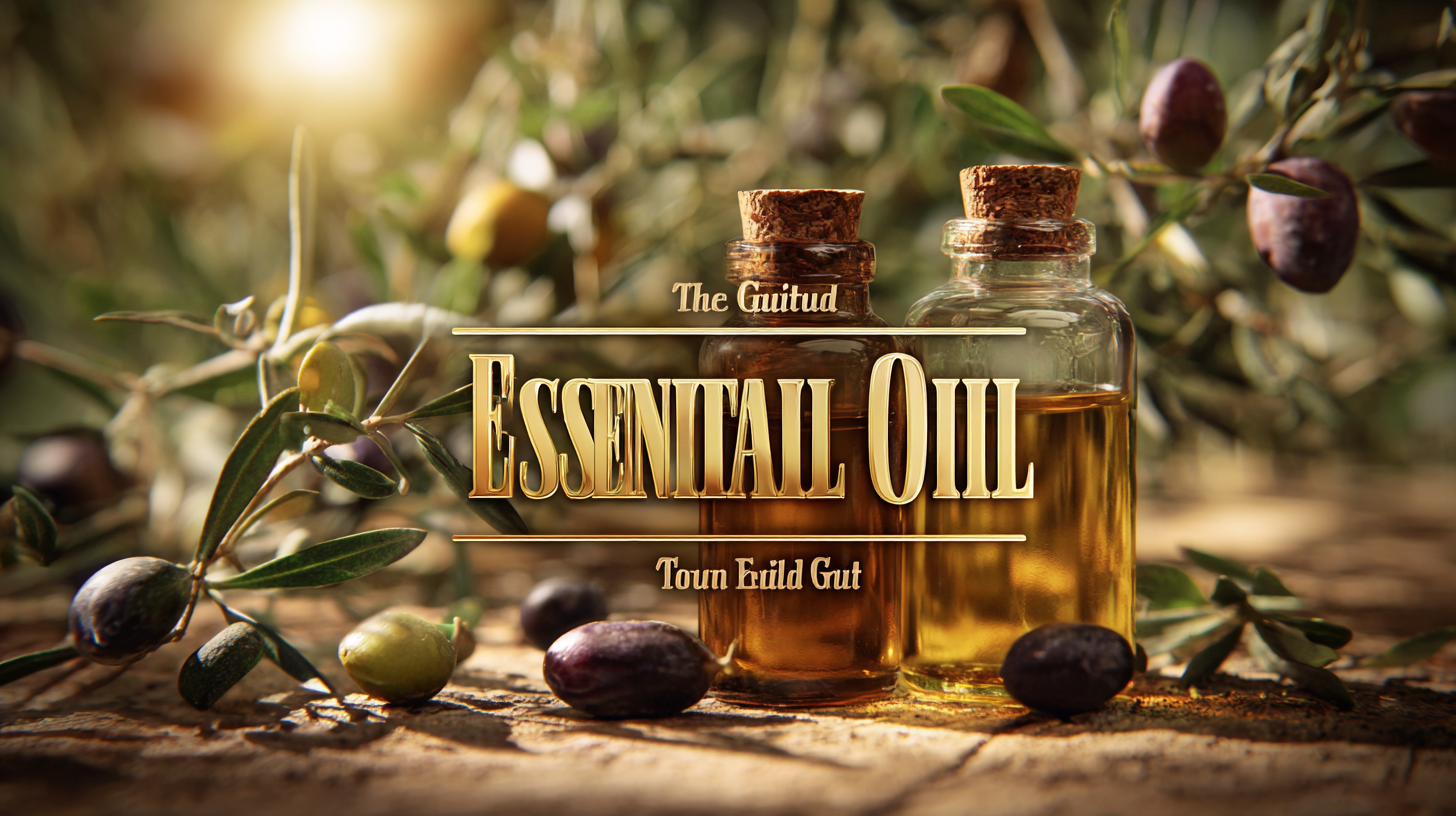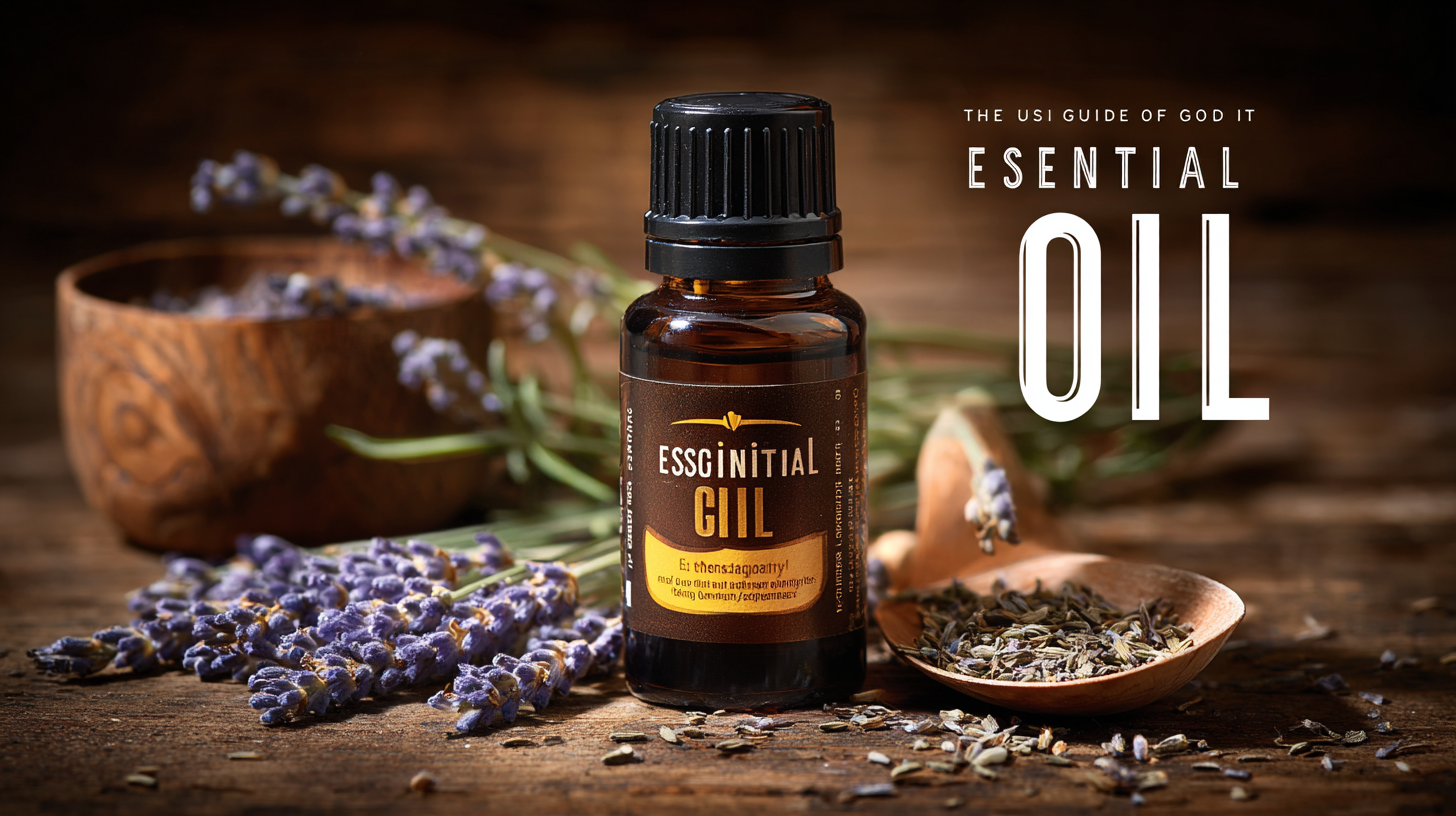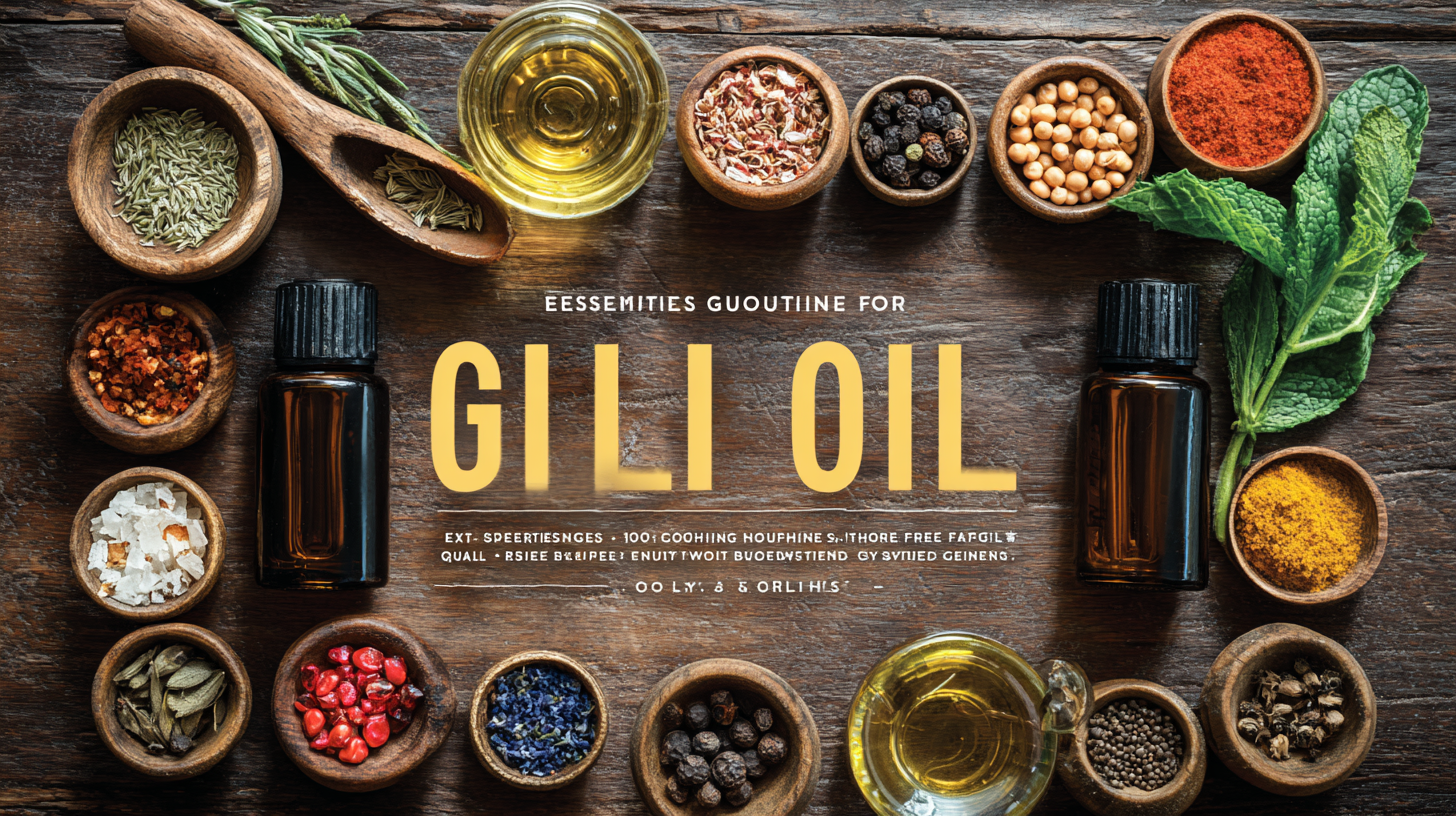

In the ever-evolving world of wellness and holistic health, essential oils have emerged as a cornerstone for both personal care and therapeutic practices. As global buyers seek the highest quality essential oils, understanding the nuances of sourcing becomes paramount. This ultimate guide serves as a comprehensive comparison piece, illuminating the diverse options available on the market, from organic farms to reliable distributors. By delving into factors such as sourcing methods, purity standards, and the geographical significance of botanical origins, we aim to empower buyers with the knowledge needed to make informed decisions. In an industry rife with variability, knowing how to differentiate between high-quality essential oils and subpar alternatives can significantly impact product efficacy and overall satisfaction. Join us as we explore the essential aspects of sourcing, ensuring that the essential oils you choose not only meet but exceed your expectations.

In the world of essential oils, the perception of quality transcends beyond the product itself; it is heavily influenced by the post-sale services provided by suppliers. When buyers invest in essential oils, they seek not only premium quality products but also guidance and support that extend beyond the point of sale. Suppliers that prioritize customer service demonstrate a commitment to ensuring their clients understand how to effectively use these oils, thus enhancing the overall experience and satisfaction.
Post-sale services, such as detailed product information, usage instructions, and responsive customer support, significantly impact customers' perceptions of essential oil quality. A company that offers comprehensive educational resources empowers buyers to make informed decisions, fostering trust and loyalty.
Furthermore, efficient return policies and feedback channels can improve customer satisfaction, reinforcing the idea that the supplier values their relationship with buyers. This holistic approach not only enhances the perceived quality of the essential oils themselves but also builds a brand reputation that attracts global buyers seeking reliable partners in their sourcing endeavors.
When sourcing high-quality essential oils, understanding repair costs is a vital factor that can significantly influence your purchasing decisions. According to a report from the International Fragrance Association (IFRA), the percentage of essential oils requiring some form of post-harvest processing has been shown to exceed 30% in certain botanicals. This processing often involves distillation, purification, and blending, which can accumulate substantial costs if not factored into the sourcing budget.
Moreover, recent trends in the essential oils market indicate that quality control measures have become a critical area of investment for suppliers. The Essential Oils Market Report by Market Research Future highlights that businesses are increasingly focusing on transparency and sustainability, driving up the costs associated with sourcing pure essential oils. These considerations often lead to a trade-off between quality and price, making it essential for global buyers to engage in thorough research and supplier evaluations. By accounting for these repair and processing costs, buyers can make informed decisions that align with their brand's commitment to quality and sustainability.
When sourcing high-quality essential oils, reliable customer support plays a crucial role for global buyers. Strong customer support not only facilitates smoother transactions but also enhances trust between suppliers and buyers. Having access to knowledgeable representatives can help buyers make informed decisions about the products they choose, ensuring they receive exactly what they’re looking for.

Tips: Always check if the supplier offers multiple channels of customer support, such as live chat, email, or phone assistance. This accessibility can make it easier to resolve issues promptly and effectively. Additionally, look for suppliers who provide detailed product information and are willing to answer questions regarding sourcing practices and oil purity.
Another key benefit of reliable customer support is the ability to receive after-sales assistance. Whether it’s guidance on product usage or assistance with returns, excellent support gives buyers peace of mind. It’s advisable to read customer reviews to gauge the responsiveness and helpfulness of the support team. This information can be instrumental in selecting a trustworthy supplier that prioritizes buyer satisfaction.
When sourcing high-quality essential oils for global markets, minimizing maintenance costs is crucial for maximizing profitability. Research indicates that essential oil producers can reduce operational expenses by up to 30% through efficient supply chain practices. This involves selecting suppliers who adhere to quality certifications such as ISO 9001, which ensures consistency in production and reduces the likelihood of defects or returns that can rack up extra costs.
Additionally, investing in advanced extraction technologies can enhance the yield of essential oils while decreasing waste. A study conducted by MarketsandMarkets projected that the global essential oils market will reach $13.94 billion by 2026, emphasizing the growing demand for quality and sustainability. By strategically sourcing from reputable suppliers and utilizing cutting-edge production methods, companies can significantly lower their maintenance costs while fostering customer loyalty through high-quality offerings. This dual approach not only enhances product value but also fortifies a brand’s reputation in a competitive landscape.
| Essential Oil Type | Country of Origin | Average Price per Litre (USD) | Market Demand (Annual Tonnes) | Common Uses | Sustainability Rating |
|---|---|---|---|---|---|
| Lavender | France | 120 | 2000 | Aromatherapy, Skincare | A |
| Tea Tree | Australia | 85 | 1500 | Medicinal, Skincare | B |
| Peppermint | USA | 100 | 1800 | Culinary, Aromatherapy | A |
| Eucalyptus | Australia | 90 | 1200 | Respiratory, Aromatherapy | B+ |
| Lemon | Italy | 70 | 2500 | Culinary, Cleaning | A+ |
When sourcing high-quality essential oils, evaluating supplier warranty options is crucial for ensuring long-term investment security. A warranty can serve as a safety net, protecting your investment against potential product defects or inconsistencies. Buyers should thoroughly review the warranty policies offered by suppliers, looking for terms that cover a substantial time frame and various product issues. This not only reflects the supplier's confidence in their products but also provides peace of mind for buyers who are committed to quality.

Moreover, it's essential to consider the supplier’s responsiveness and customer service regarding warranty claims. An efficient claims process indicates a reliable partnership where trust can be established and maintained. Engaging suppliers who are transparent about their warranty conditions and who prioritize customer satisfaction can streamline your sourcing experience. This aspect becomes increasingly important in a global market where communication barriers may arise. A supplier with a strong warranty and supportive customer service can safeguard your business interests while fostering a long-term alliance focused on quality and reliability.